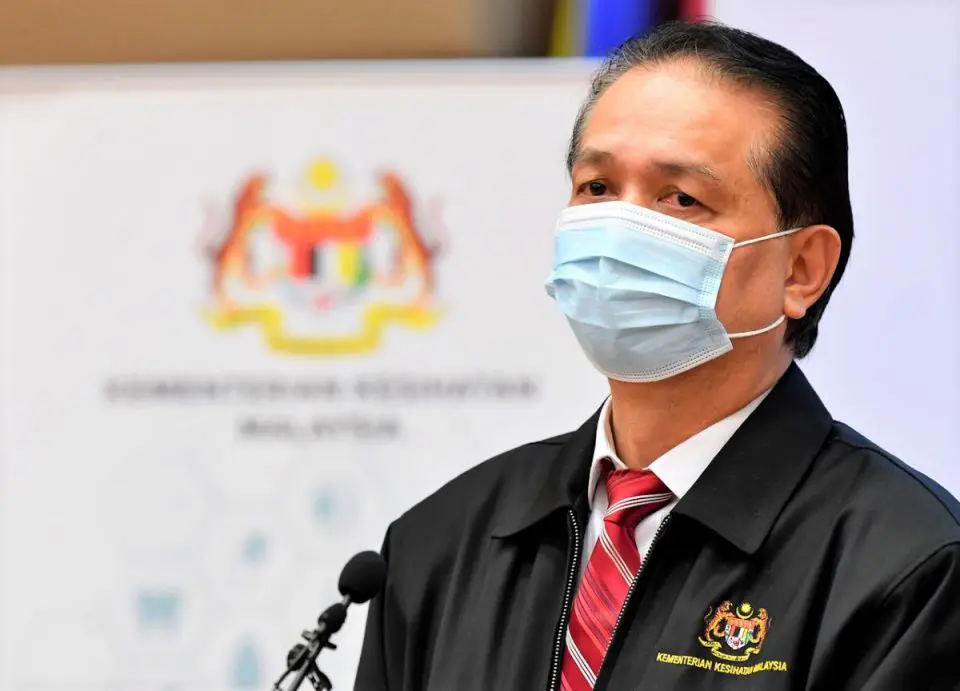KUALA LUMPUR, Aug 15 — The Health White Paper (HWP) is critical and will be the starting point of the country’s health reform journey, said Health director-general Tan Sri Dr Noor Hisham Abdullah.
He said the opinions and ideas of various stakeholders have been consistently sought and that the cooperation of the private sector and NGOs in working with the government is critical to ensuring the success of the health system reform.
“Let us work together, understanding the need for the change is a golden opportunity. Let us shape our health system with an innovative, equitable, sustainable, and resilient model. Be the voice to strengthen our healthcare system via the HWP proposal,” Dr Noor Hisham said in his message for the Health Policy Summit 2022: The Future of Our Healthcare – Health White Paper Development, here today.
He was unable to physically attend the event. However, the director-general’s speech was pre-recorded and was presented during the panel session.
The purpose of the HWP, Dr Noor Hisham noted, is to propose the significant changes needed to ensure that Malaysia’s health system can anticipate and fulfil the nation’s evolving health needs.
In his speech, Dr Noor Hisham shared a glimpse of the solutions that the health fraternity can adopt to strengthen Malaysia’s health system resilience through innovation, equity and sustainability
He highlighted that partnerships from all stakeholders are pivotal in ensuring health system resilience and cited examples in the recent Covid-19 pandemic where everyone came together in a concerted effort.
“We implemented effective strategies to contain the impact of the pandemic by ensuring continued access to health services, medicines and vaccines, building up the healthcare workforce, in strengthening the capacities to prevent and respond to health emergencies successfully.
“We optimised the human resources and assets across government agencies in a concerted public health pandemic response. This was made possible by multiple stakeholders, including central agencies, local authorities, and security forces. Individuals, NGOs and companies contributed by donating equipment, from face masks to ventilators,” Dr Noor Hisham said.
He added that said during the pandemic, Malaysia also experienced a lot of services backlog for non-Covid-19 cases and special regulatory exemptions were also made to allow doctors, including surgeons to practice in facilities other than their regular places.
“Mass surgical initiatives were organised at multiple sites all over the country. Surgeons and support healthcare workers from various health-related sectors, including the armed forces, private hospitals and universities, were all deployed mainly on a pro-bono basis,” Dr Noor Hisham said, adding that when the Ministry of Health (MOH) facilities were at full capacity, the government authorised the outsourcing of procedures to private healthcare.
Partnerships should also be established at the regional and international levels, such as through the Asean Public Health Emergency Coordination System (APHECS) that will ensure better coordination, inclusiveness, and accountability, improving regions’ health system’s resilience.
On health system innovation, he said the government via MIDA, MOH and CRM (Clinical Research Malaysia) collaborated with an international company that provides integrated pathology services for drug development and immuno-oncology testing.
“This collaboration has direct benefits for clinical research in this region. Hopefully such tests for cancer biomarkers will soon be available locally with shorter waiting times for diagnosis and management,” Dr Noor Hisham said.
Apart from that, he aims to tackle supply chain failures that happened in the early days of Covid-19 and the advent of war in distant countries by utilising nearshoring.
“Not only does nearshoring provide the potential for ready, fast supplies and lower costs, but international companies relocating to Malaysia will spur more research and development, leading to more cutting-edge innovation,” Dr Noor Hisham said.
On health system equity, he urged stakeholders to build on existing public-private partnerships, such as through the PeKa B40 scheme, Kospen (Komuniti Sihat Pembina Negara) and Kospen Plus (programmes to improve stress management skills among community members and those who are working), MOH’s quit-smoking programme, mQuit and outsourcing of services the private sector can provide for the urban and the semi-rural populations.
“This allows the MOH to prioritise and continue strengthening service delivery in deeper rural areas, where there is less participation from the private sector. These examples of public and private partnerships also fortify equity, as seen in the integration of both sectors in providing Covid-19 vaccination under the National Covid-19 Immunisation Programme (PICK) which had allowed segments of the population, including blue-collared foreign workers, to be vaccinated at high-end private healthcare facilities,” Dr Noor Hisham said.
Meanwhile, on health system sustainability, he said the healthcare challenges of resilience, innovation and equity would be significant if Malaysians cannot ensure sustainability.
Dr Noor Hisham said health should be seen as an investment not a cost and need to ensure that the investment into health is sufficient as better health financing through adequate, efficient, and equitable public sector fund management is key to a sustainable health system.
— Bernama





